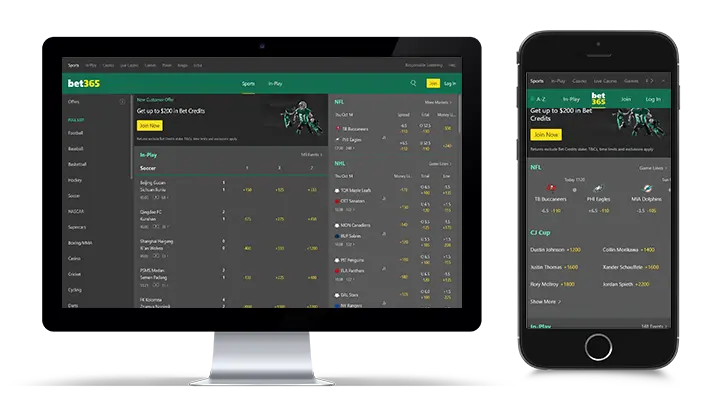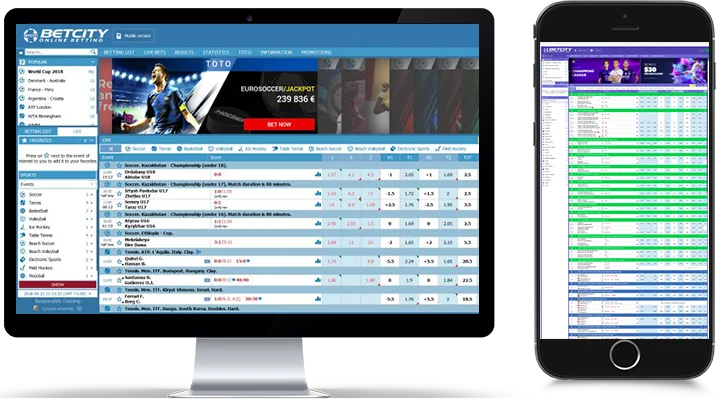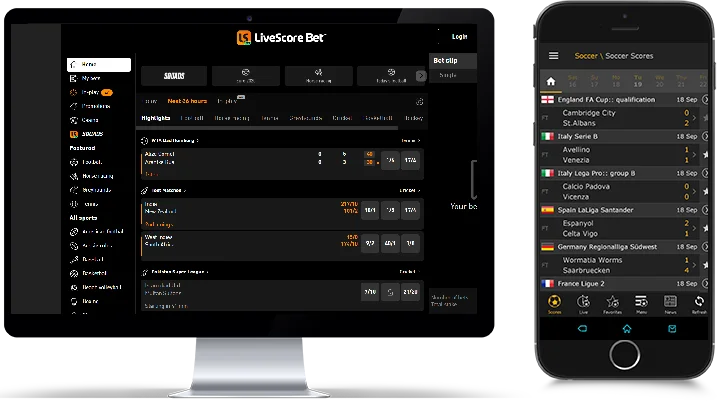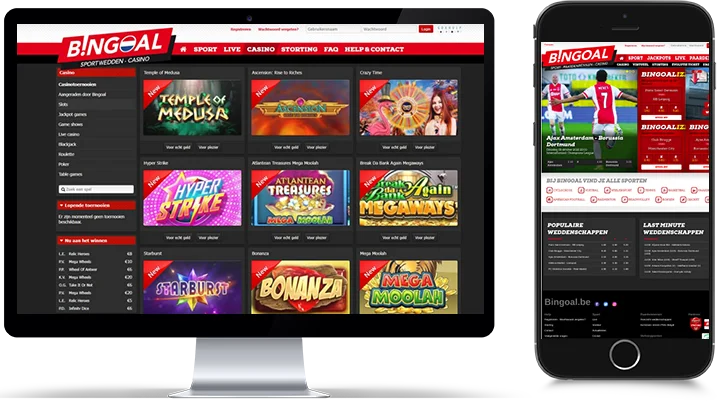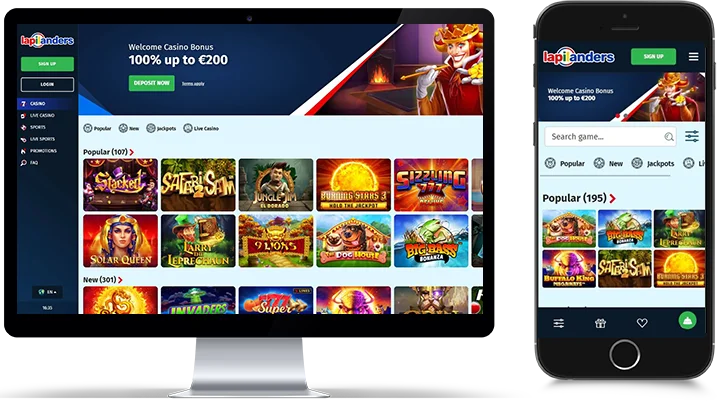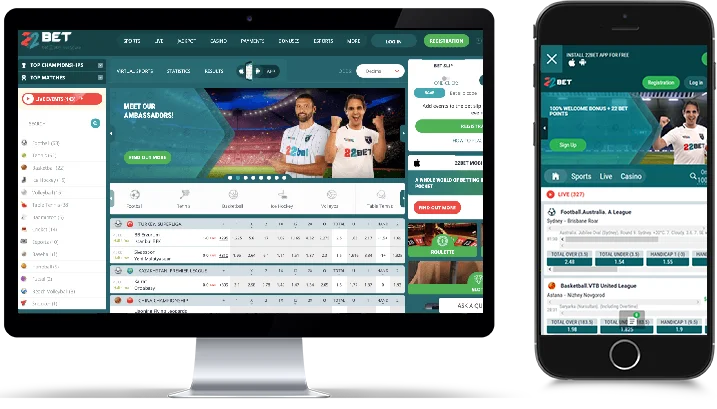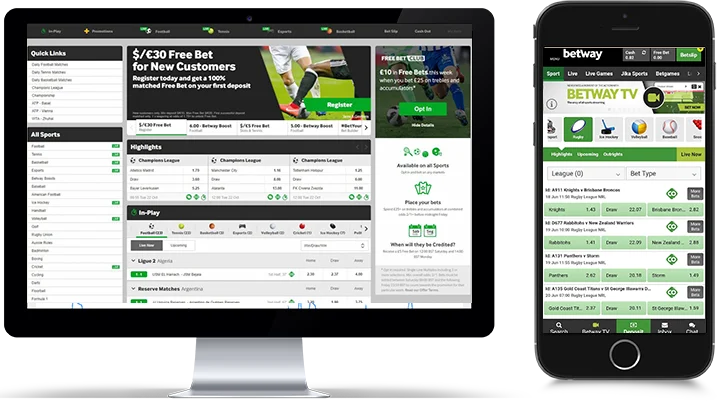The Netherlands may not be famous for its sports activities or large sports betting sector but both sports and gambling are ingrained within the nation’s interesting culture and way of living. Known for its tulip fields, windmills, and quite liberal beliefs, the country is also home to one of the most passionate cyclists and soccer fans. It is also the country with the world’s oldest state lottery, the Staatsloterij, which was established nearly 300 years ago and is operating to this day.
All gambling and betting activities in the Netherlands are run by the state monopoly, with all other operations considered illegal. But just like in most of Europe, the legal landscape is quite complicated and the country is now set to liberalize its online betting and gambling market. The Dutch Remote Gaming Act was passed and the regulated online gambling market is expected to launch in 2021. Until then, bettors in the Netherlands can place bets on websites based outside the country or visit the state-run betting shops.
Legalities of Online Sports Betting in Netherlands
Historical Betting Overview
The Dutch have been avid gamblers for at least three centuries with lotteries, betting on sports and horse races being popular forms of recreation for many of them. The Nederlandse Staatsloterij, which translates as the Netherlands’ State Lottery, was launched in 1726 in Hague. This is the first evidence we have for an organized form of betting regulated by the Government but informal lotteries, games of chance, and betting operations have probably been popular long before that.
However, the Staatsloterij remained the only entity with the legal authority to offer any type of gambling or betting services to the Dutch citizens. This continued well into the 20th century when betting on sports was finally legalized as the second state monopoly in the 1960s. Despite the long-lasting ban on a wide range of gambling activities, the stance towards sports betting and gambling as a whole has never been as negative as in other European countries.
After all, the Dutch have always been known as a modern, progressive nation. With the new legislation in place, the online betting market is expected to be privatized, starting in the summer of 2021. Considering that half of the country’s population even now takes part in the games of the state lottery, the expectations for the future regulated online betting sector are very positive.
What You Need to Know about Sports Betting in the Netherlands
Online sports betting in the Netherlands has recently become completely legal. Legislative changes that began a couple of years ago are already a fact with the enacting of the Remote Gambling Act (KOA). At the beginning of October 2021, the government issued the first ten licenses for online sports betting and casino games in the country.
The choice for Dutch bettors is expected to become even more diverse, as many license applications have been submitted so far. One of the strict conditions is for the betting provider to have a stationary seat in the EU or EEA or at least to be licensed and supervised by another country’s institution.
Being the chief regulatory body, the Netherlands Gaming Authority monitors all online gambling activities in the country. Online betting operators are obliged to keep an eye on players’ behavior and take restricting measures if they feel people are about to become problematic gamblers. If punters try to avoid the imposed limitations, they can be banned from the bookie’s website and their names will be incorporated in a central register.
Bettors in the Netherlands can use several payment methods accepted by almost all online bookmakers. Apart from the well-known bank transfers, credit and debit cards, Trustly, and Paysafecard, other methods traditionally used in the country are iDEAL and Klarna popular due to their fast transaction times and low or no fees. Apple Pay is also becoming popular and since 2019 has gained more than 2 million users.
Odds Format in Netherlands
All three types of odds – decimal, fractional, and American, are used to describe the value of a certain bet. However, they tend to focus on different aspects of the betting process. Similarly to most of the European countries, the dominant type of odds in the Netherlands is the decimal format. This is probably the simplest format, allowing punters to immediately see how much they would win for every $1 staked.
Imagine we are betting $100 at odds of 2.5 – to calculate the potential profit, we need to multiply the stake by the odds. In this case, the bet could bring a total return of $250. What we should bear in mind when discussing decimal odds is that the bettor’s stake is included, which means that the return of $250 comprises the $100 original bet plus a net profit of $150. To represent even odds, for instance, bookmakers simply display them as 2.0. The same odds would be shown as 1/1 in UK betting sites or as -100 (for the favorite) and +100 (for the underdog) in American betting platforms.
Dutch Betting Laws and Legislation
As we have mentioned already, all gambling and betting operations in the Netherlands are run by the state monopolies and according to the current legislation, adults aged 18 and over are allowed to place bets at regulated betting sites or in land-based betting shops. Betting was first legalized in 1961 when the Betting and Gaming Tax Act was passed. After three years, the Betting and Gaming Act 1964 (BGA) provided the full regulation for the gambling and betting sectors.
The Act states that all betting operations are prohibited unless they are provided by a licensed operator. This means that all betting activities that found to be unauthorized and not holding a proper license would be fined and prosecuted. Moreover, it is illegal for Dutch bettors to bet at websites without a local license. And this is where the state monopoly can be seen – according to Article 16 (1) of the BGA, only one license could be issued and it is currently held by Lotto B.V., which manages all betting shop and the betting site of Toto Sportweddenschappen.
Several other state-controlled monopolies are responsible for the lotteries, casino games, and other regulated gambling activities in the country. This includes, for instance, Holland Casino, which has exclusive rights to offer casino games and has more than a dozen branches across the country, and Staatsloterij B.V., which is the national lottery.
Several years ago, the country decided to introduce a regulated online gambling market where new licenses would be issued to both domestic and foreign betting and gambling operators. The measures were drafted in 2014 and in February 2019, the Dutch Senate finally passed the Remote Gambling Act. When the new piece of legislation comes into force (probably on June 1, 2021), it would introduce a new licensing regime. According to the Dutch Gaming Authority, more than 180 casino and betting operators have expressed interest in applying for a remote gaming license.
Dutch Betting Restrictions
The current gambling legislation in the Netherlands is very restrictive and does not allow casinos or bookmakers to operate without a license. This includes online operations, which means that is illegal to offer such services to Dutch residents and to bet at unlicensed offshore websites. However, punters are not prosecuted and do not face fines or criminal charges, whereas foreign operators who offer their services to Dutch people are fined.
The Government is trying to block access to websites, which accept Dutch customers and are available in the Dutch language. It even attempted to force the local banks to process transactions to and from offshore betting sites as other countries such as the United States have done in the past. The authorities’ efforts, however, turned out to be fruitless since the Dutch banks refused, claiming such an act would violate the citizens’ rights.
Another important thing Dutch bettors should be aware of is that only individuals aged 18 or over are allowed to participate in any betting or gambling activities. Winnings above €454 are subject to a 29% tax, which is automatically charged at the source. Since people can legally bet only in licensed shops or at the website of the state monopoly, their winnings from offshore sites would be taxed. In addition, gamblers are not required to pay any tax if they have spent more than they have won.
According to the current sports betting license, punters cannot stake more than €1,000 per bet. In addition, there are weekly deposit limits, which vary, depending on the bettors’ age. Those who younger than 24 can deposit up to €100 per week, whereas punters aged 24 and over are allowed to make deposits of up to €1,000 each week.
Online Betting Regulatory Body in Netherlands
The Netherlands Gaming Control Board was established in 1996 to regulate the betting industry in the country. In 2012, however, it was replaced by a new authority called Kansspelautoriteit (KSA). The KSA consists of board members who are appointed and dismissed by the Minister for Legal Protection (Justice and Security). The Dutch gaming policy, enforced by the KSA, has three main priorities, namely player protection, prevention of gambling addiction, and securing measures against crime and unfair practices.
The KSA is authorized to impose fines on betting and gambling businesses found to be offenders. The maximum administrative fine imposed by the Authority without the intervention of the Public Prosecution Service or a judge is €830,000 or 10% of the annual turnover of the company – whichever is higher. It can also issue administrative orders and penalties, while in serious cases, it may appeal to the Public Prosecution Service to open legal proceedings.
Popular Betting Markets in the Netherlands
The Netherlands is one of the countries with the largest number of actively sporting people (about 2/3 of the adult population practices some discipline at least once a week). It is interesting to note that some of the most popular sports, namely fierljeppen, beugelen, kaatsen, klootschieten, kolven, and korfball are strictly local and almost not practiced outside the country. This is probably the reason why they rarely appear as an option for betting in online sportsbooks.
The leading discipline in the field of sports betting is football. This is not surprising, as it has millions of fans around the world, but it must be also borne in mind that some of the most famous players of all time are Dutch – Ronald Koeman, Dennis Bergkamp, Johan Cruyff, Marco van Basten, and many more. The competitions covered are the World Cup, the UEFA Champions League, the UEFA Europa League, the UEFA Europa Conference League, both leagues in the Netherlands, the KNVB Cup, and the national leagues of over 70 countries.
Another common bettors’ favorite, tennis, is present in all online bookmakers in the Netherlands. The betting markets are diverse and for some matches there are over 50 betting options. Smaller local tournaments are not featured but punters can enjoy hundreds of events from the ATP, WTA, ITF, and Challenger series.
Volleyball is one of the sports the Dutch are very good at and logically is in one of the leading positions in terms of interest shown by the punters. Bets can be placed both on matches from major international tournaments and in several domestic championships – the Czech Republic, Kazakhstan, Russia, Poland, Denmark, etc.
The list of sports available on the betting market continues with basketball, golf, ice hockey, American football, MMA, winter sports, eSports, and many more.
| Popular Betting Markets in the Netherlands Summary | |
|---|---|
| Sport | Leagues |
| Football | UEFA Champions League, UEFA Europa League, Eredivisie, Eerste Divisie, KNVB Cup, Premier League, La Liga |
| Tennis | Roland-Garros, Australian Open, US Open, Tenerife Ladies Open, Bogota Open, ITF tournaments |
| Volleyball | World Championship, World Grand Prix, NCAA Women, Central American Cup, etc. |
| Basketball | NBA, NCAAB, Euroleague, Eurocup, FIBA Champions League, VTB United League |
| Ice hockey | NHL, KHL, DEL, WHL, Alps Hockey League, World Championship, Club friendly games, etc. |
Dutch Online Betting Bonuses
Those who decide to bet at the website of the state monopolies can expect various bonuses and promotions, including free bets, cash bonuses, increased odds on combination bets (Toto Combi Boost), and more. However, most punters prefer betting at offshore websites that are not required to declare the winnings of their customers before the Dutch Government or to impose the state 29% tax.
The vast majority of betting sites that accept customers from the Netherlands also cater to members from all over Europe. Many of them, although technically offenders according to the Dutch law, are, in fact, licensed and fully regulated in other European jurisdictions. This means that they have passed compliance tests and have proved before the authorized institutions that they are fair and secure. Moreover, all reputable betting sites have a variety of bonuses for new and existing members.
This includes, of course, the sign-up offers, which typically come as either a free bet or a deposit bonus. Bookmakers offering free bets usually require newly registered members to make a minimum deposit of $10, $20 or $30 (or the equivalent in Euro) and wager it once on the betting platform in order to qualify. Free bets usually come in fixed amounts ($20, $50, etc.) and must be spent on the site before the winnings from them could be withdrawn.
There are also certain conditions that must be met when claiming a deposit bonus. Deposit bonuses are credited by operators as a percentage (often 100% or more) of the first deposit made into the site. Once the deposit is confirmed, there will be a wagering requirement – the bonus usually must be wagered a certain number of times on qualifying games. Deposit bonuses normally have a rollover between 5 and 15 times the bonus amount, while free bets usually need to be rolled over up to 6 or 8 times. Punters should know, however, that if the bonus is wagered at some other types of games such as casino games, the rollover is increased to at least 25 times the bonus amount.
Mobile Betting in Netherlands
Mobile betting is becoming increasingly popular as technologies evolve and bookmakers create better, faster, and more convenient mobile platforms. Most people now prefer to access online bookmakers from their phones rather than having to wait to get home to place a bet on their favorite team or player. Moreover, some of the leading bookies available in the Netherlands have introduced state-of-the-art apps which allow bettors to watch live events, to bet on them, and to access detailed stats about the two teams.
The vast majority of betting operators, however, prefer to optimize their websites for both desktop and mobile use. Rather than creating a native app, they just improve the design, functionality and overall look of their betting platforms so they can perform just as seamlessly on mobiles. It is a better alternative for punters, too, because you do not need to download and install any special piece of software on your phone and tablet. The majority of mobile-friendly betting sites are compatible with all Android and iOS devices.
It is interesting to see whether the planned Remote Gambling Act would cover the mobile aspect of online gambling and betting and whether it would have special provisions for this now-booming market. Currently, Dutch bettors should not worry about accessing mobile bookmakers from their phones and tablets – the Government seems to be relaxing the strict regime and its negative stance on unregulated betting.
Popular Betting Banking Methods in Netherlands
Most of the betting sites that accept Dutch members are available in the Dutch language, process payments in Euro (EUR), and offer a wide range of payment methods that would be convenient to those in the Netherlands. This includes traditional options such as wire transfers and international credit and debit cards like Visa, Maestro, and Mastercard, but also a few methods that are now preferred by Dutch customers.
We should start with the e-wallets, of course, which are incredibly popular among those who bet online – the deposits via these digital wallets are instant, extremely secure, and come with very low fees. Often, transactions to betting sites are not charged additionally at all. Withdrawals are also incredibly fast, compared to other banking methods and, depending on the particular bookmaker, you can receive your winnings within a few hours or up to a day. Popular e-wallets in the Netherlands are PayPal, ecoPayz, Skrill, and Neteller.
The most popular payment processor in the Netherlands, however, is iDEAL. This is an online payment system, based on online banking and available to practically anyone with a bank account in the country. It transfers funds to and from users’ bank accounts to merchants and vice versa. This makes the bank transfer faster, easier, and more convenient. This is why most if not all betting sites available to Dutch punters have introduced iDEAL payments.
Bettors can also use various prepaid cards such as Paysafecard or Entropay to fund their sportsbook balance. However, prepaid vouchers are not available for withdrawing their winnings so they should look for another way to cash out. Some operators now offer Bitcoin payments and transfers using other cryptocurrencies like Litecoin or Ethereum. Once you learn how to use cryptocurrency wallets, the transactions to and from your betting balance would be fast, convenient and extremely secure.
| Popular Banking Methods in the Netherlands | |||||
|---|---|---|---|---|---|
| Payment Method | Fees | Deposit Limits | Deposit Times | Withdrawal Limits | Withdrawal Times |
| Debit & credit cards (Visa, Mastercard) | 1.3% – 2.5% | Min €10/Max €40,000 per transaction | 1-3 business days | Min €10/Max €30,000 per transaction | 1-3 business days |
| iDEAL | €0.25 | Min €10/Max €5,000 per transaction | Instant | Not available for online sportsbooks | N/A |
| ecoPayz | 0-10.0% | Min €10/Max €1,000 per transaction | 1-4 business days (Instant within the sportsbook) | Min €10/Max €1,000 per transaction | 5-8 business days |
| Klarna | No fee | No limits specified. (Check sportsbooks for their limits) | Instant | Max €10,000 per transaction | 1-2 business days |
| Apple Pay | No fee | Min €1/Max €10,000 per transaction | Instant | Min €1/Max €10,000 per transaction | 1-3 business days |
| Trustly | No fee | Max €10,000 per transaction | Up to 2 business days | Max €10,000 per transaction | 1-2 business days |
| Bank transfers | Varies | Max €10,000 per transaction | 1-3 business days | Max €10,000 per transaction | 1-3 business days |
What to Watch When Picking Dutch Betting Site
The online sports betting market is not yet filled with a large number of licensed operators, so punters must choose their bookmaker carefully. Licensees have to meet a great number of serious criteria to obtain permission to operate on the Dutch market so the first thing bettors must check is whether the online bookie holds a valid license. Most often, the relevant information is located at the bottom of the website.
Although the first licenses in the Netherlands were issued recently, the bookies have actually been online for a long time, so it’s a good idea to look for customer reviews on the Internet to better understand what to expect and how to make your game as satisfying as possible.
Unless you are a fan of a niche sport, your favorite discipline is probably present in the portfolio of all online bookmakers. However, it is good to check which leagues are represented, as well as what types of bets, as each bookie has its own specifics. If you hesitate between several online sportsbooks with similar parameters, check what promotional offers they currently have. Always read the full terms for receiving a bonus, so as not to be unpleasantly surprised by some small condition that you unknowingly did not fulfill.
Quality customer service is extremely important, so always check in advance what are the ways to contact the customer care team. The more methods, the better. The availability of a 24/7 service is a testament to the serious attitude of the operator and makes you confident that if a problem arises, there is always someone to rely on.
 Netherlands Legislation
Netherlands Legislation

